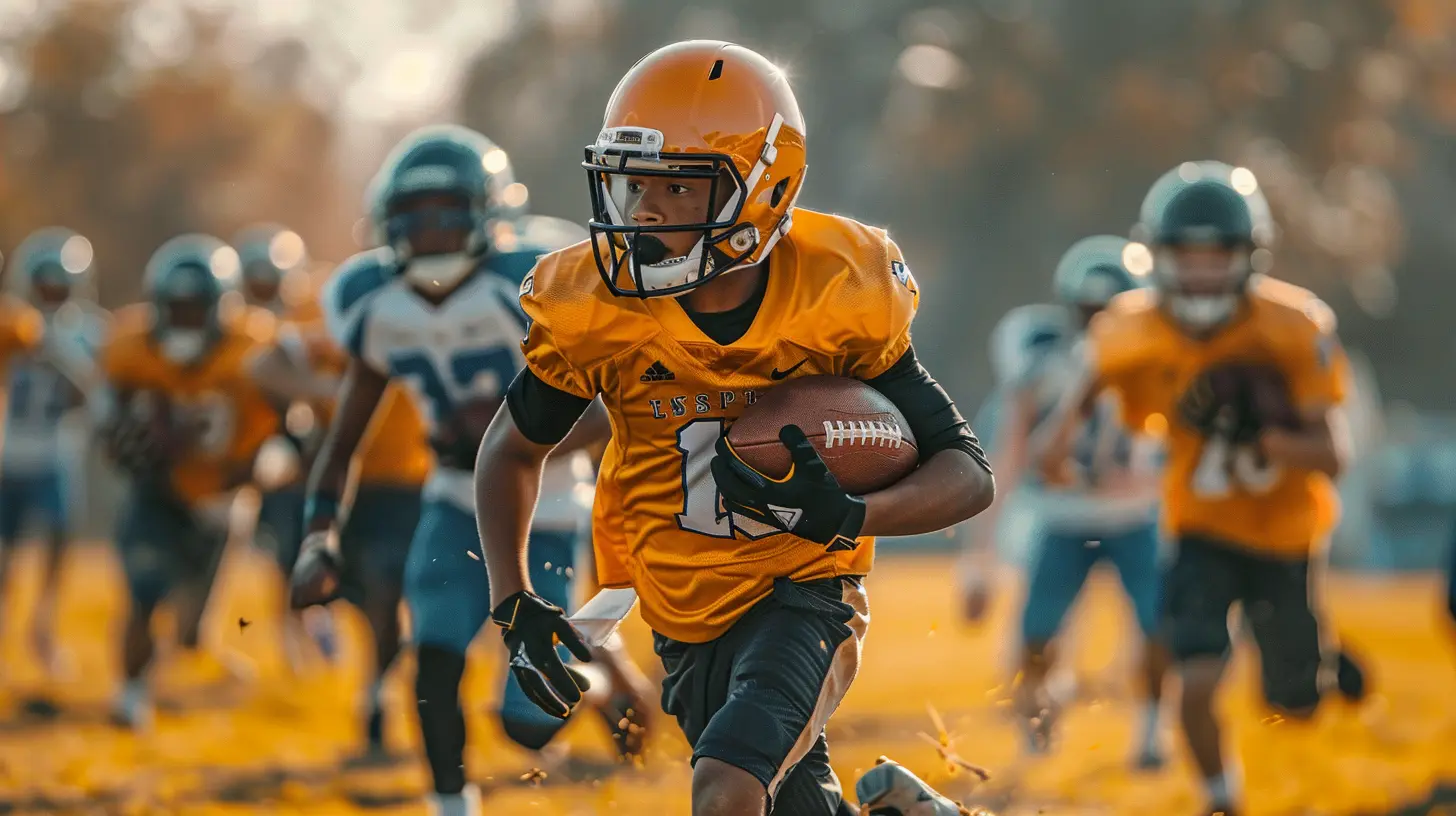How High School Sports Shape Future Leaders: Lessons from the Field
10 July 2025
High school sports are more than just games; they are breeding grounds for future leaders. Whether it's basketball, football, soccer, or track, the lessons learned on the field extend far beyond the scoreboard. The discipline, teamwork, resilience, and strategic thinking developed through sports often translate directly into leadership skills that last a lifetime.
So, how exactly do high school sports shape future leaders? Let’s break it down.

1. Building Discipline and Work Ethic
One undeniable trait of great leaders is their ability to stay disciplined. High school athletes quickly learn that success doesn’t come overnight. It takes early morning practices, grueling workouts, and the ability to balance academics with training sessions.Coaches demand commitment, and athletes must show up prepared—mentally and physically—every single day. This kind of routine instills a work ethic that future leaders carry into their careers, whether in business, politics, or any other field.
The Power of Repetition
Ever heard the phrase, "Practice makes perfect"? High school sports reinforce this concept daily. Athletes repeat drills until their muscles remember the motions instinctively. In leadership, the same principle applies. Success often comes from consistency, preparation, and mastering the fundamentals—whether it's leading a team project or running a company.
2. Learning Teamwork and Communication
Great leaders don’t work alone, and neither do great athletes. High school sports teach students how to function as a unit, understanding that individual talent means nothing without cooperation.Trusting Your Teammates
A quarterback can’t win without a dependable offensive line. A point guard needs teammates who can execute plays. Sports force athletes to rely on each other, fostering trust and communication—two vital leadership qualities.Leaders in any field need to know how to delegate responsibilities, listen to different viewpoints, and communicate effectively. In sports, a lack of communication can mean a missed play or a lost game. In leadership, it can mean an unsuccessful project or a struggling company.

3. Handling Pressure and Adversity
Pressure-cooker moments define both sports and leadership. The final seconds of a tied championship game mirror high-stress boardroom decisions. Athletes develop the ability to perform under pressure, a trait that serves them long after they leave the field.Overcoming Defeat
Not every game ends in victory. Losing is tough, but it teaches resilience. Athletes who experience loss learn to accept failure, analyze what went wrong, and come back stronger.Great leaders also experience setbacks. The difference between success and failure often lies in how they respond. Do they dwell on the losses, or do they use them as fuel for growth? Sports teach young athletes to embrace challenges and bounce back from disappointment, a mindset that fuels leadership success.

4. Developing Time Management Skills
Balancing school, practice, games, and personal life isn’t easy. Student-athletes must learn how to juggle multiple responsibilities—which is essentially what leadership is all about.Prioritizing What Matters Most
Athletes quickly learn that procrastination leads to disaster. If they don't manage their time well, grades drop, performance suffers, and exhaustion sets in. Future leaders take these lessons into adulthood, where managing meetings, deadlines, and personal responsibilities becomes crucial.5. Encouraging Accountability and Responsibility
No one holds athletes more accountable than their teammates and coaches. If you skip practice, let your team down, or fail to prepare, you don’t just hurt yourself—you hurt the entire squad.Owning Mistakes
Mistakes in sports are inevitable. Maybe you miss a crucial free throw or fumble the ball at the worst possible moment. But the best athletes own their errors, learn from them, and move forward.Leaders do the same. Whether it’s a bad business decision or a failed project, taking responsibility and learning from mistakes earns respect and fosters growth.
6. Cultivating Confidence and Mental Toughness
Confidence isn’t something people are born with—it’s developed through challenges and perseverance. Sports push young athletes to step out of their comfort zones, face tough competition, and trust in their abilities.The Power of a Winning Mindset
A strong leader believes in their vision, just like an athlete believes in their training. The mental toughness needed to power through tough games is the same inner strength that helps leaders stand firm in difficult situations.7. Teaching Leadership Through Captaincy and Mentorship
Many high school teams appoint captains—students who lead by example, encourage their teammates, and make critical on-the-spot decisions. Captains develop leadership qualities early by motivating their peers, resolving conflicts, and setting the standard for hard work.Mentoring Younger Players
Senior athletes often take younger players under their wings, offering advice and support. This mentorship role prepares them for leadership in the real world, where guiding and uplifting others is essential for success.
8. Instilling a Competitive Spirit and Drive to Succeed
Great leaders and athletes have one thing in common: they hate losing. That competitive drive pushes them to improve, work harder, and never settle for mediocrity.Embracing Healthy Competition
In sports, competition fuels growth. It pushes players to sharpen their skills and strive for victory. In leadership, competition encourages innovation, strategic thinking, and the pursuit of excellence. A high school athlete who thrives on competition is more likely to bring that same energy into their career.Final Thoughts
High school sports shape future leaders in ways that go far beyond the field. The discipline, teamwork, resilience, and work ethic instilled in young athletes prepare them to take on leadership roles in every aspect of life. Whether a student becomes a CEO, a coach, or a community leader, the lessons learned through high school sports create a foundation for success.So, next time you watch a high school game, remember—you’re not just watching athletes play; you’re watching future leaders in the making.
all images in this post were generated using AI tools
Category:
High School SportsAuthor:

Frankie Bailey
Discussion
rate this article
1 comments
Taryn Middleton
This article beautifully highlights the powerful impact of high school sports on personal growth and leadership. These experiences not only shape athletes but also foster resilience and teamwork, essential qualities for future success in any endeavor.
July 20, 2025 at 8:28 PM

Frankie Bailey
Thank you for your thoughtful comment! I’m glad you found the article resonant; high school sports truly play a pivotal role in developing crucial life skills.


